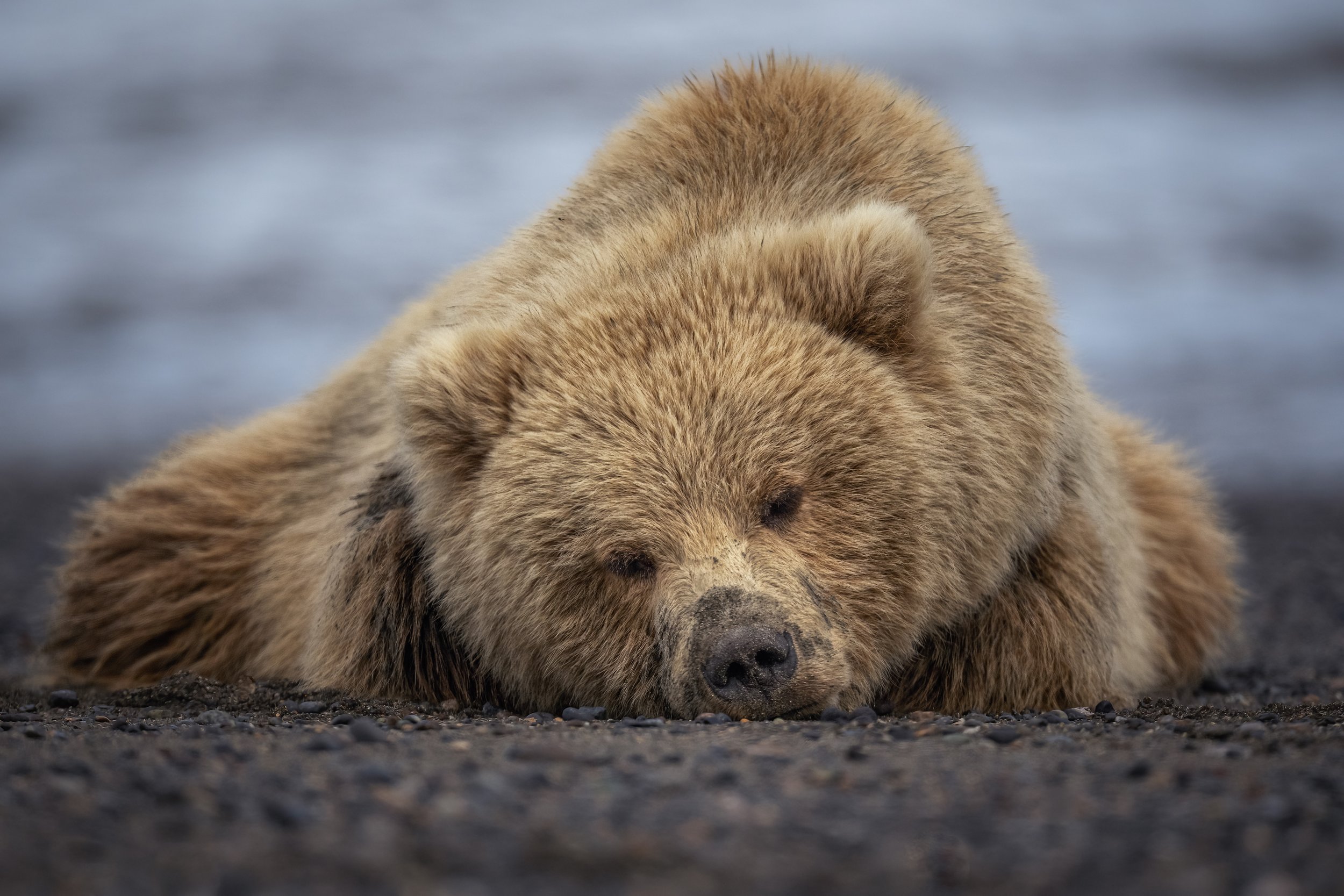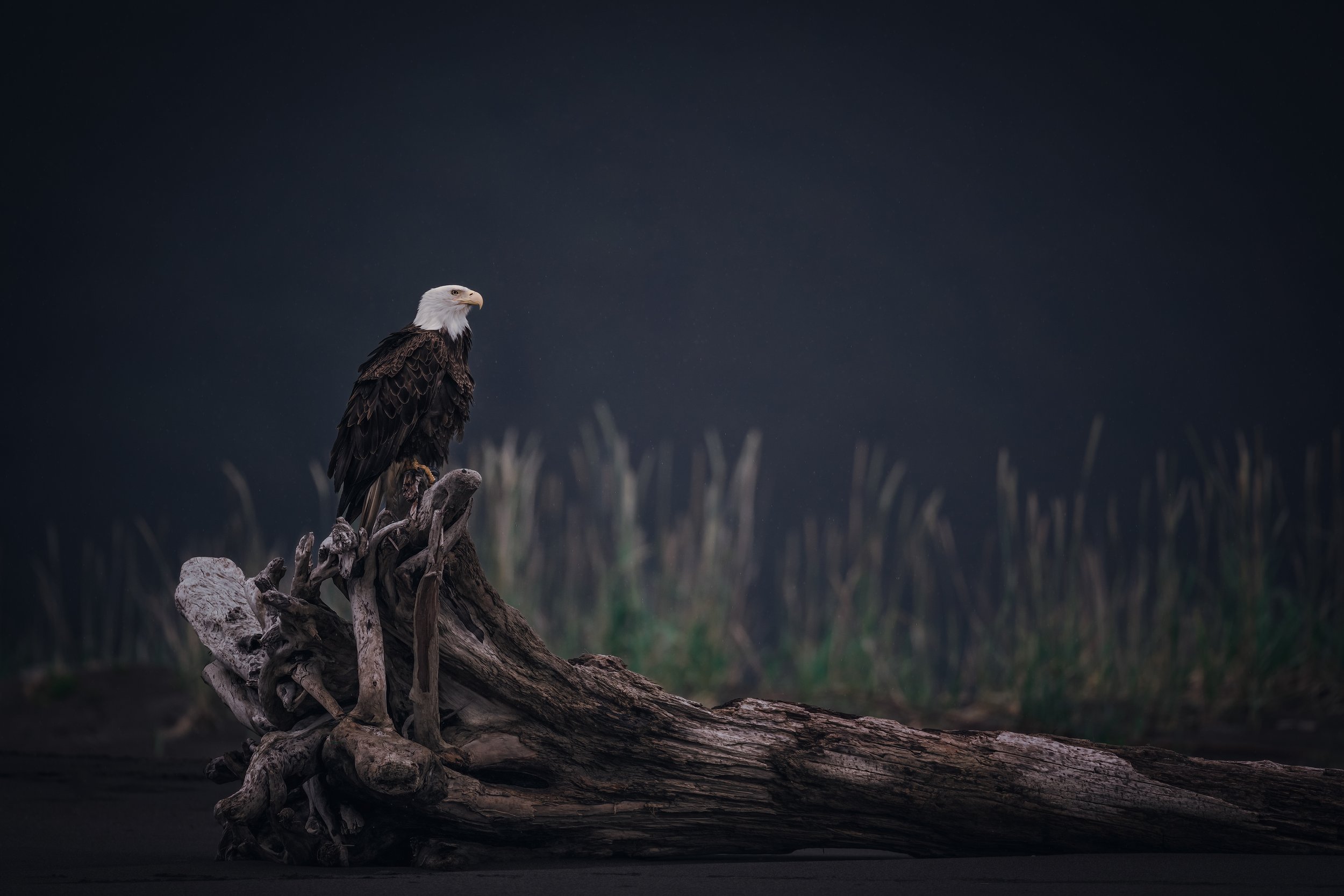
Alaska

details
Dates
June 16-22 2025
Pricing
$6,500/$7500
difficulty
mild
Group Size
8
-
Day 1:
Travel day and arrive in Anchorage; hotel check-in at afternoon; Workshop meet-n-greet in the evening.
Day 2
Depart early-morning by air charter for the approximate 1-hour flight to the Homestead Lodge. Check-in and head out for the day.
Days 3-6:
We shoot from sunrise to sunset and each day is broken into four-photography excursions: early-morning; mid-morning, early-afternoon and after dinner. You are welcomed to take full advantage of every day or take breaks and join the next excursion time.
For an extra fee and weather contingent, we may have the opportunity to book a short excursion to capture Puffins.
Day 7
Depart early-morning by air charter for the approximate 1-hour flight to Anchorage and end the workshop.
-
Included
Day 1-7 accommodation.
Roundtrip air charter transportation from Anchorage/Homestead.
All meals while at the Homestead.
All park fees and guides.
Photography instruction and post-processing sessions.
Not included
Airfare to and from Anchorage.
Meals when not at the Homestead.
Alcoholic beverages and snacks.
Gratuities for Homestead staff, bear and photography guides.
Puffin excursion, if possible.
-
Ask questions so that you don’t over or under pack No question is a bad question!
Make sure your laptop operating system software is updated.
Update Lightroom Classic and Adobe Photoshop. Make sure you log out of Adobe and log back in, before leaving, so that your versions are good for offline use for 30 days. Do the same with any other software you use for processing.
Make sure your lenses and sensors are clean.
Set your camera so it will only fire with a memory card in the slot. You never know when you might forget to put the card back in the camera, and the last thing you want is to find out later that all those “shots” you took weren’t saved. As well as formatting your cards.
-
Anchorage is the arrival and departure airport. Please do not book your flights until instructed to do so. While we do not anticipate changes to our itinerary until final payments are due, it can happen.
-
$1,000 Deposit is due to reserve your spot and the full balance is due 60 days prior to arrival date.
Please see the full Terms and Conditions including cancelation fees on the site.
-
Pack your gear so your go-to lens is handy and ready to go. Consider storing that lens on the camera body.
Double check that you have all cords, adapters, and other accessories that you’ll need during the workshop. Consider bringing a small travel power strip.
Pack all of your lithium batteries in your carry-on bag, so that you are complying with flight regulations. I do not suggest checking in any camera gear.
Pack all prescription medication, supplements, and eyeglasses/contacts in your carry-on bag. Bring along a supply of over-the-counter medicines that you might need such as cold medicine, antihistamine, anti-diarrheal medicine, antacids, pain relievers, and similar products. Also consider packing 1 day of fresh under garments in your carry on, in case luggage is delayed.
Tripod. Consult with me if you don’t have one you’re thrilled with, and we can recommend the right one for your needs. Be sure you also have adjustment tools, if needed. Make sure to include the mounting plates for your tripod.
Two Camera Bodies. Sony, Canon, Nikon, Panasonic, Olympus, Hasselblad, Fuji, or another—your choice. Why two? You’ll have a backup in case of accidental damage or electronic failure.
Bring plenty of batteries for your cameras, and chargers as well. If your trip involves locations with limited electric power, you will want to bring a power bank to recharge your batteries.
Lenses. For most landscape and wildlife workshops, a wide-angle zoom (16-35, 17-35, 17-40), a general-purpose zoom (like 24-70 or 24-105), and a medium telephoto zoom (like 70-200). For some wildlife at least 300mm, and likely 400mm or 600mm. Canon, Sony, and Fuji all make 100-400mm lenses that are great for wildlife. It’s quite fine to use the Sigma or Tamron 150-600 lens as well. Don’t own any of this glass? No worries— Lens Rentals to the rescue! They make renting easy, and with the code “MUENCHLENS15” at checkout, you’ll save 15% on every rental.
Those who are local in Fort Worth TX, use Fort Worth Camera and let them know you are going on my workshop.
Memory Cards. You’ll want to have plenty of these—ideally enough that you won’t have to format any while on the workshop, although I recommend backing up on a HD every day.
Card reader!
Laptop. I use and exclusively teach Lightroom Classic for post-processing, though you may also use other software programs. Once downloaded and installed, be sure you connect (via the internet) with Lightroom Classic and Photoshop. This will ensure you’ll be able to use them offline on your trip.
Plug Adapters. If you are traveling internationally, you will likely need adapters for your plugs.
Lens Cleaning Cloth. I also love Zeiss Cleaning Wipes. Remember to blow of the lens prior to wiping id down. Also if you bring sensor cleaning supplies I can do that for you if needed.
Camera Rain Cover. Buy an inexpensive plastic one from Amazon, or a more permanent one from ThinkTank.
Backpack. You’ll definitely want a comfortable camera backpack for carrying all of your gear. I love the bags from Promaster.
Camera Manual. Bring the manual for your camera! This is very important. TIP: get the PDF and store it on your smartphone.
-
While you don’t want to overpack, it’s always good to assume that it will be colder, windier, and wetter than you expect. Wondering if you should bring your rain pants? Bring them. Extra pair of gloves in case the first gets wet? Great idea. Maybe your socks get soaked in a stream or the surf of the ocean. Another layer? Yes. Be prepared for the unexpected.
Make sure your boots are properly fitted and broken in. Waterproof boots will be provided for this trip.
Boots/Shoes. Sturdy, broken-in hiking boots or hiking shoes appropriate for the workshop. This is not the time for a brand new pair.
Reusable Water Bottle. It is important that we all reduce our use of plastics.
interested? Click below to sign up!
FAQs
WHEN DOES THE TOUR START?
June 16, 2023
WHEN DOES THE TOUR END?
June 22, 2023
DO I NEED TRAVEL INSURANCE?
Brandon Cunningham Photography does require travel insurance because anything can happen!
Are accommodations single or double occupancy?
Prices reflect single occupancy unless told otherwise. Should you and a non-photography companion book together or you have photography buddy also booking, you can get a double occupancy room and pay a little less for the workshop.
AM I REQUIRED TO BE VACCINATED TO GO ON THIS TOUR?
We will abide by all local, federal and international COVID-19 regulations.
WHAT GEAR DO I NEED TO THIS TOUR?
Each trip is a little different as far as what you may need/want to bring with you. Generally you will want to bring some version of a monopod, tripod or handheld along with batteries, chargers, laptop, external hard drives, and your longest lens for capturing photos of animals from afar. If you have any specific questions, please see the contact page and send Brandon a message.